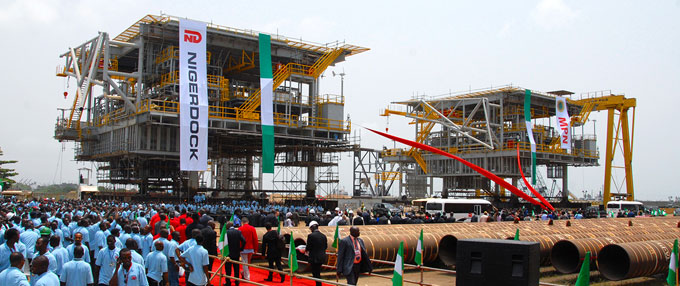One year after the International Monetary Fund (IMF) visited Nigeria and advised for immediate subsidy removal and devaluation of the naira, the financial institution has blamed the economic team for failures based on delayed/poorly managed policy adjustment.
It would be recalled that Christine Lagarde, IMF managing director, met with leaders of both monetary and fiscal policy team including Kemi Adeosun, minister of finance; Godwin Emefiele, governor of the Central Bank of Nigeria (CBN) and President Muhammadu Buhari and advised for policy adjustments.
But from the latest report of the IMF, the apex bank’s efforts to save the naira by rationing foreign exchange have gradually crumbled thereby soaring inflationary trend to record high last month.
IMF had called for subsidy removal and devaluation of the naira at that time but the efforts failed not because they were not done, but due to implementation specifications.
IMF’s policy paper on macroeconomic developments and prospects in low-income developing countries (LIDCs), released weekend noted that “There were sharp movements in currencies across many LIDCs during 2015. Further sizeable depreciations were recorded in 2016 in commodity exporters under stress”.
“Mongolia, where reserve levels have been significantly eroded, and Nigeria, where efforts to support the naira through foreign exchange rationing have gradually crumbled”.
“Inflation has risen to troubling levels in a handful of cases, concentrated in sub-Saharan Africa. Among commodity exporters, large exchange rate depreciations were a key contributor in Mozambique, Nigeria, and Zambia”.
According to the world body, the policy failures grew on lack of business confidence in conflict zones and delay in policy adjustment by the country’s leadership.
“Domestic policy failures cited include delayed/poorly managed policy adjustment to lower commodity prices — as in Nigeria, where foreign exchange rationing adversely affected debt service capacity of many corporates.
“Nigeria (is) affected by Boko Haram-led attacks in the north and disruptions to oil production in the Niger Delta region. Aside from direct damage and increased security outlays, conflict situations undermine business confidence, investment, and tourism.”
IMF also disclosed that the recession in Nigeria technically infected neighbouring countries like Chad, Niger and Benin.
The report also noted further that “External developments have predictably played an important causal role in the emergence of financial sector stress, through falling commodity prices, declining remittances, and adverse spillovers from neighbors — as in the impact of Nigeria’s economic difficulties on Benin.
Apart from delayed and poorly administered policies by the federal government within the period, further IMF’s studies show that poor macroeconomic policies and careless supervisory follow up crashed the manufacturing sector and the entire economy.









